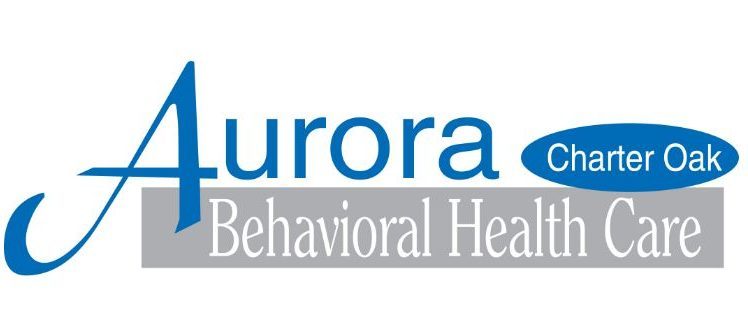What is schizophrenia?
Schizophrenia is a mental health condition resulting in people having difficulty thinking clearly and remaining grounded in reality. People who have schizophrenia experience psychosis, including having auditory hallucinations and delusions about people plotting against them.
Schizophrenia impacts both men and women, and onset occurs during people’s twenties and thirties. Although rarer, teenagers can experience schizophrenia, too. Schizophrenia among teenagers is often difficult to notice because common symptoms of teenage schizophrenia are consistent with typical teenage behavior. These symptoms include increased irritability, sleep problems, and self-isolation.
There is a strong genetic risk factor for schizophrenia, and scientists believe that a person’s environment may also play a role in causing the condition. There is some evidence that substance abuse and drug use during teen years may contribute to a person developing schizophrenia.
Although schizophrenia can be an extremely debilitating condition, people can manage their schizophrenia and live normally. Treatment is most effective if administered early, and treatments mostly focus on managing symptoms. Common treatments for schizophrenia involve antipsychotic medications, cognitive behavioral therapy, and family education programs. Family education programs are often extremely important, as many people with schizophrenia rely on their family members for help.
What are the signs and symptoms of schizophrenia?
Schizophrenia has a variety of different manifestations and symptoms. Common symptoms include:
- Talking with jumbled speech
- Experiencing paranoia that people are seeking to harm you
- Hearing voices
- Appearing disconnected from the present moment
- Exhibiting abnormal motor behavior, such as sitting or standing in unnatural postures
- Delusions that there are hidden messages in print media or other communications
- Demonstrating a lack of insight about one’s situation and surroundings
Another common symptom of schizophrenia is suicidal thoughts or actions. People who experience schizophrenia may feel hopeless, and they may consider suicide to be the only way to change their situation. Other people who experience schizophrenia may engage in suicidal behaviors as part of a delusional episode.
Often, people who have schizophrenia are unaware of their mental health condition. Accordingly, friends and family must help the individual access treatment from behavioral health professionals. In some cases of schizophrenia, the individual is unable to care for themselves and may be at risk of self-harm. If a person is ever at immediate risk of harming themselves or others, call 988 immediately.
In many cases, people with schizophrenia also suffer from other mental health conditions. These other mental health conditions may include obsessive-compulsive disorder (OCD), post-traumatic stress disorder (PTSD), depression, or substance abuse issues. Clinicians refer to people who experience schizophrenia and substance use issues simultaneously as having a dual diagnosis. Clinicians have found that treating one condition in dual-diagnosis cases typically improves symptoms of the other condition.
How Aurora Behavioral Health Care – Charter Oak can help treat schizophrenia
People who have schizophrenia and their loved ones need to know that help is available. Behavioral health treatment programs can lead to positive changes in people’s well being, and with the right treatments, people can improve their mental health. It is possible to have schizophrenia and also be a productive member of society.
At Aurora Behavioral Health Care – Charter Oak, we treat schizophrenia and a range of other mental health conditions. Our treatment programs include inpatient mental health programs and outpatient programs. Patients who have schizophrenia and enroll in our inpatient treatment programs receive 24/7 monitoring and medication management services. Our outpatient offerings include partial hospitalization programs and intensive outpatient programs. We can also tailor our programs to address any substance abuse issues in dual-diagnosis cases.
During treatment programs for schizophrenia, we employ a range of evidence-based methods. These methods include administering antipsychotic medications and cognitive behavioral therapy sessions. These sessions may use individual therapy or group therapy styles. Additionally, each treatment program has a family education component to help the patient transition back to home life. To achieve lasting mental health improvements, each patient must have a supportive home environment.
Our clinical team at Aurora Behavioral Health Care – Charter Oak understands that schizophrenia impacts every patient differently and that patients have a range of unique needs. Accordingly, our team works hard to customize treatment programs for each patient’s unique situation. With the right care and skilled team, patients can achieve optimal treatment outcomes.
Get treatment for schizophrenia at Aurora Behavioral Health Care – Charter Oak
Treatment for schizophrenia and other mental health conditions is available in Covina, CA at Aurora Behavioral Health Care – Charter Oak. To get started with schizophrenia treatment at Aurora Behavioral Health Care – Charter Oak, call our team directly at 800-654-2673.
Alternatively, you can contact us online, and we will reach out to you as soon as possible.
Once you get in touch with us, our team can help answer any question you may have about our schizophrenia treatment programs and behavioral health hospital. Additionally, a member of our team can help schedule you or a loved one for a free mental health assessment. With the result of the evaluation, our team can start building a customized treatment program.
Schedule one here today.

